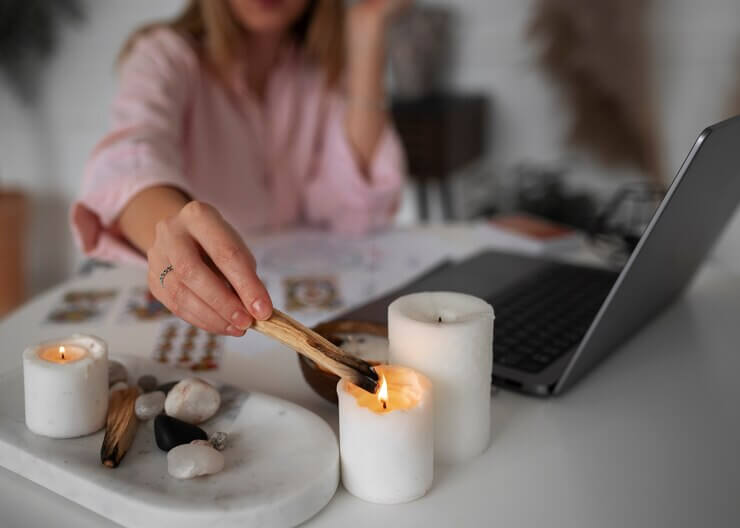The UK candle market continues to grow rapidly as consumers seek scented, decorative, and premium candles for their homes. But while candles add beauty, fragrance, and warmth, they also carry significant safety risks when not properly manufactured or tested. From fire hazards and excessive soot to unstable flames and container failures, unsafe candles can lead to serious accidents.
This is why candle safety testing UK has become essential for manufacturers, importers, home-based candle makers, and major retailers. Ensuring candles meet UK and EU safety standards is not only important for consumer protection — it is a requirement for legal market access.
In this blog, we explain why candle safety testing matters, what it includes, and how professional compliance support helps you launch safe, reliable, and fully compliant candle products.
Why Candle Safety Testing UK Is Essential
A candle may seem simple, but it is a controlled flame inside a consumer’s home. Even a small design or material flaw can create significant safety issues. Key risks include:
- Excessive flame height
- Soot and smoke emissions
- Wick mushrooming or instability
- Glass or container cracking
- Tunneling or uneven burning
- Overheating wax pools
- Tip-over hazards
- Spill risks with multi-wick candles
Without proper testing, these dangers can result in house fires, burns, respiratory irritation, and property damage. Candle safety testing helps identify issues early, reduces liability, and protects your customers and brand reputation.
UK & EU Standards for Candle Safety
In the UK and EU, candle products must comply with several safety standards, including:
- EN 15493: Fire Safety of Candles
- Covers flame height, burn behaviour, and fire safety performance.
- EN 15426: Sooting and Emission Testing
- Measures smoke, soot, and particulate matter.
- EN 15494: Product Safety and Labelling Requirements
- Ensures correct hazard warnings, pictograms, and safety instructions.
These standards apply to:
- Scented candles
- Decorative candles
- Jar and container candles
- Pillar, taper, and tealight candles
- Specialty candles such as novelty shapes or multi-wick designs
Professional candle safety testing ensures your products meet all of these standards before entering the market.
What Candle Safety Testing in the UK Includes
Candle safety testing is performed by accredited laboratories, but compliance consultancies provide the essential coordination, preparation, and regulatory support needed. Comprehensive candle testing typically involves:
1. Burn Performance Testing (EN 15493)
This ensures the candle burns safely and consistently. Testing includes:
- Flame height measurement
- Self-extinguishing performance
- Wax pool behaviour
- Wick performance
- Stability and tip-resistance
- Total burn time analysis
This is crucial for preventing fire risks.
2. Soot and Emission Testing (EN 15426)
Candles should not release soot or harmful particulates beyond approved limits. Tests analyse:
- Soot index
- Visible smoke
- Emission characteristics
This is especially important for scented and dyed candles.
3. Thermal Shock & Container Safety Testing
Jar and container candles must withstand high temperatures without cracking. Tests include:
- Heat resistance
- Container strength
- Wax expansion behaviour
- Shock resistance
These tests prevent glass breakage during use.
4. Material and Wick Analysis
Testing ensures the wick and wax combination burns safely and predictably. This may include:
- Wick core analysis
- Wax composition review
- Fragrance load compatibility
- Dye stability tests
A mismatch between wick size, wax type, and fragrance levels can cause dangerous flame behaviour.
5. Labelling & Safety Instructions Check (EN 15494)
Correct labelling is required by law and must include:
- General candle safety symbols
- Warning statements
- Usage instructions
- Burn time guidance
- Container-specific warnings
Improper or missing warnings are among the most common causes of non-compliance.
Who Needs Candle Safety Testing UK?
Testing is essential for businesses including:
- Large-scale candle manufacturers
- Boutique candle brands
- Home fragrance companies
- Importers and wholesalers
- Private-label candle suppliers
- E-commerce and retail sellers
- Home-based candle makers expanding to retail
Whether you sell 100 candles or 100,000, you must meet the same safety requirements.
Common Compliance Challenges for Candle Makers
Many candle brands struggle with:
- Inconsistent burn performance
- Excessive soot
- Wicks that mushroom or bend
- Unsafe flame heights
- Jars cracking due to heat
- Incorrect labelling
- Overloaded fragrances
- Poorly matched wick-wax combinations
Professional guidance helps you resolve these issues before testing, reducing the risk of costly failures.
How Compliance Consultants Support Candle Safety Testing
Candle safety tests must be performed by third-party laboratories, but compliance consultants play a vital role in managing the entire process. They provide:
- Pre-testing guidance and formulation review
- Gap analysis to identify potential failures
- Selection of accredited testing labs
- Coordinating sample submissions
- Label and packaging compliance checks
- Safety Data Sheet (SDS) support for fragrance oils
- Post-testing corrective action recommendations
This ensures your products meet every legal and safety requirement before entering the market.
Benefits of Candle Safety Testing
Businesses that invest in candle safety testing benefit from:
- Safer products and reduced liability
- Stronger trust with customers and retailers
- Fewer returns and complaints
- Compliance with UK and EU regulations
- Competitive advantage in the marketplace
- Improved customer satisfaction
Testing protects not only your customers — but also your brand.
Conclusion
Candle safety testing UK is a critical requirement for any candle brand looking to sell legally and safely. With strict burn, soot, and labelling standards to meet, professional testing and regulatory guidance ensure your candles are safe, compliant, and ready for the market.
Whether you're launching a new candle range or scaling your production, expert support helps you avoid risks, improve product quality, and maintain full compliance with UK and EU regulations.





Comments